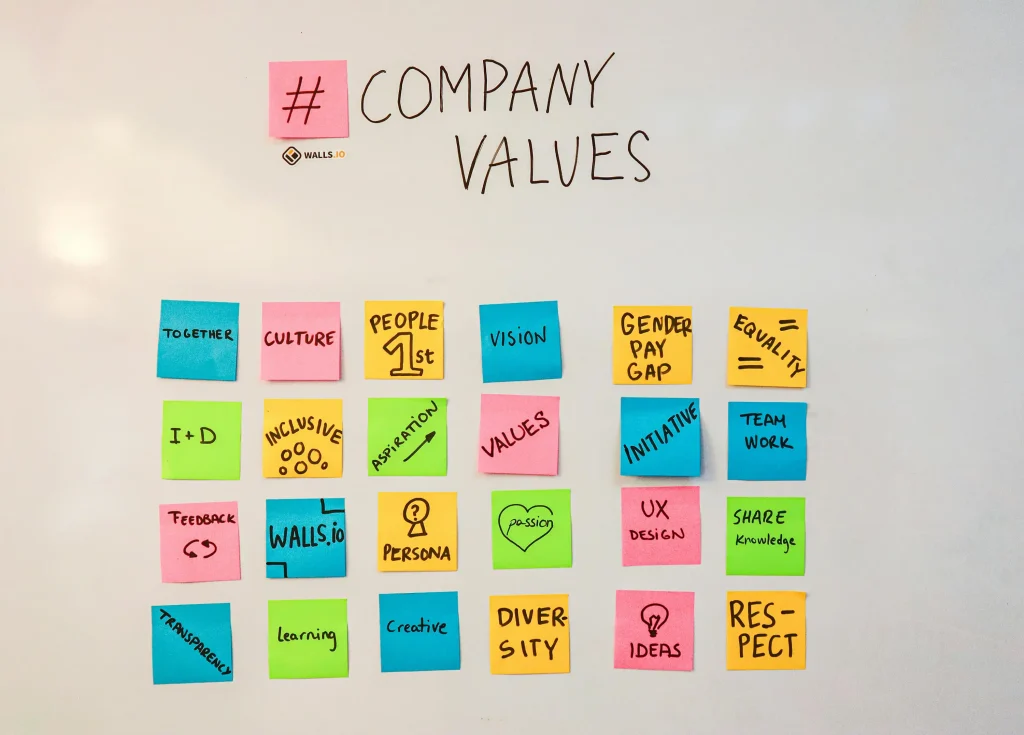
Congratulations, you’ve landed an interview for your dream job! You’ve researched the company, practiced your answers to common interview questions, and picked out the perfect outfit. But have you thought about what questions you should ask during the interview?
Asking the right questions during a job interview can not only show your interest and enthusiasm for the position, but it can also help you gather important information about the company and the role. However, there are some dos and don’ts when it comes to knowing what to ask at job interviews and what you shouldn’t ask in a job interview. In this article, we’ll explore 10 dos and don’ts of asking questions during your job interview to help you make a great impression and gather valuable information.
Do: Ask About the Company Culture and Values
Asking about the company culture and values can give you insight into the company’s values and how they align with your own. It can also help you determine if the company is a good fit for you. Some questions you can ask include:
- How would you describe the company culture?
- What values are important to the company?
- How does the company promote diversity and inclusion?

Don’t: Ask About Salary and Benefits
While it’s important to know about the salary and benefits for a job, it’s not appropriate to ask about them during the initial interview. This can give the impression that you are only interested in the job for the money and not for the work itself. Save these questions for when you receive a job offer.
However, if you’re asked what your expectations for salary and benefits are, consider giving an expected compensation range based on market research instead of a number. You can also turn the question back on the potential employer and say something along the lines of, “I’d like to learn more about the duties, the position and what the team is like before discussing my compensation. But I would like to ask what salary range you are considering for this position. “Always be truthful and the second interview is the time to talk salary and benefits.
Do: Ask About the Company’s Goals and Future Plans
Asking about the company’s goals and future plans can show that you are interested in the company’s growth and success. It can also give you an idea of where the company is headed and how you can contribute to its success. Some questions you can ask include:
- What are the company’s short-term and long-term goals?
- How does the company plan to achieve these goals?
- How does this role contribute to the company’s overall goals?
Don’t: Ask About Time Off or Vacation Policies
Similar to asking about salary and benefits, asking about time off or vacation policies during the initial interview can give the impression that you are more interested in the perks of the job rather than the job itself. Save these questions for when you receive a job offer.
Do: Ask About the Team and Your Potential Colleagues
Asking about the team and your potential colleagues can give you an idea of the company’s team dynamic and how you would fit in. It can also show that you are interested in building relationships and working collaboratively. Some questions you can ask include:
- Can you tell me about the team I would be working with?
- How does the team collaborate and communicate?
- What qualities do you look for in team members?
Don’t: Ask About the Company’s Competitors
While it’s important to research the company’s competitors before the interview, it’s not appropriate to ask about them during the interview. This can make the interviewer feel uncomfortable and may give the impression that you are more interested in the competition than the company itself.
Do: Ask About the Company’s Training and Development Opportunities
Asking about the company’s training and development opportunities can show that you are interested in growing and developing your skills within the company. It can also give you an idea of how the company invests in its employees. Some questions you can ask include:
- What training and development opportunities are available for employees?
- How does the company support employee growth and development?
- Can you tell me about a time when an employee was able to advance their career within the company?

Don’t: Ask About the Company’s Financials
While it’s important to research the company’s financials before the interview, it’s not appropriate to ask about them during the interview. This can make the interviewer feel uncomfortable and may give the impression that you are more interested in the company’s financial stability rather than the job itself.
Do: Ask About the Company’s Work-life Balance
Asking about the company’s work-life balance can give you an idea of the company’s expectations and how they prioritize work-life balance for their employees. It can also show that you value a healthy work-life balance. Some questions you can ask include:
- How does the company promote work-life balance for its employees?
- Can you tell me about a time when an employee was able to maintain a healthy work-life balance?
- How does the company handle work-life balance during busy periods?
Don’t: Ask About the Interviewer’s Personal Life
While it’s important to build rapport with the interviewer, it’s not appropriate to ask about their personal life during the interview. This can make the interviewer feel uncomfortable and may give the impression that you are prying into their personal life.
Do: Ask About the Next Steps in the Hiring Process
Asking about the next steps in the hiring process can show that you are interested in moving forward and are eager to hear back from the company. It can also give you an idea of the timeline for the hiring process. Some questions you can ask include:
- What are the next steps in the hiring process?
- When can I expect to hear back from the company?
- Is there anything else I can provide to support my application?
Don’t: Ask About the Interviewer’s Political or Religious Beliefs
Similar to asking about their personal life, it’s not appropriate to ask about the interviewer’s political or religious beliefs during the interview. This can make the interviewer feel uncomfortable and may give the impression that you are trying to gauge their beliefs for your own personal reasons.
Conclusion
Asking the right questions during a job interview can help you gather important information and show your interest in the company and the role. However, it’s important to be mindful of the questions you ask and avoid asking about sensitive topics or things that can be easily researched. By following these dos and don’ts, you can make a great impression and gather valuable information during your job interview. Employment North is always here to help you prepare for your interview. Feel free to contact us or drop into the office before your next Muskoka job interview. Good luck!

